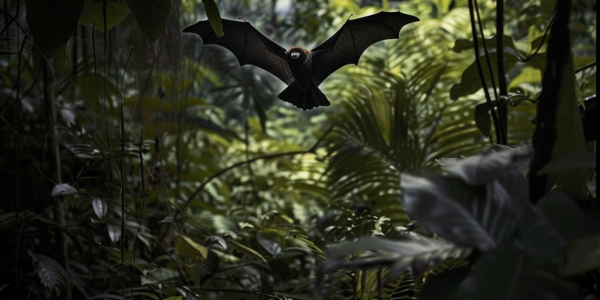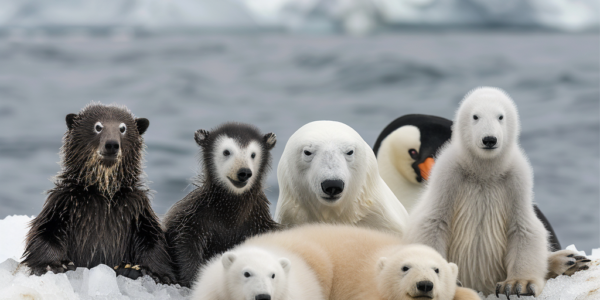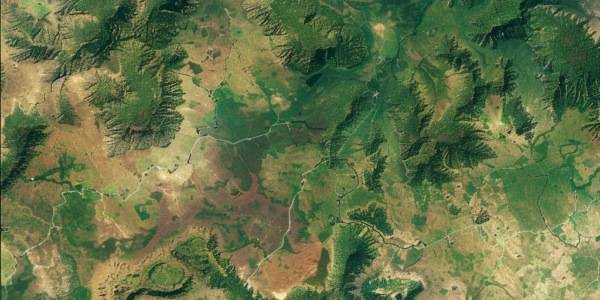Climate Change Threatens Polar Ecosystems: Alarming Decline in Sea Ice Impacts Marine Food Chain
Scientists are sounding the alarm over rapid changes in polar regions, particularly the alarming loss of sea ice, which threatens the marine food chain. With record low levels of Antarctic sea ice and predictions of an ice-free Arctic by 2050, the nutritional quality of crucial microalgae is at risk. Dr. Rebecca Duncan’s research highlights the importance of these ecosystems, emphasizing the need for urgent conservation efforts to address the impacts of climate change on polar marine life.
New Framework Aims to Streamline Biodiversity Credit Markets for Conservation
Ecologists have introduced a groundbreaking framework to enhance biodiversity credit markets, addressing the complexities of defining ‘units of nature.’ With a $700 billion annual funding gap to combat biodiversity loss, the urgency for businesses to engage in nature recovery has intensified. This new analysis, published in the Proceedings of the Royal Society B, highlights the need for standardized measurements in biodiversity credits and aims to create effective compensatory mechanisms for genuine ecological preservation.
Scientists Propose New Conservation Strategy to Combat Biodiversity Loss Amid Climate Change
International scientists warn of biodiversity loss due to climate change and propose a new conservation strategy focusing on climate change-refugia. Their research emphasizes identifying and protecting resilient ecosystems to mitigate species extinction and adapt to environmental changes. This innovative framework aims to enhance conservation efforts and safeguard both wildlife and human livelihoods.
Scientists Propose Lunar Biorepository to Preserve Earth’s Biodiversity
Scientists propose a revolutionary lunar biorepository to preserve Earth’s biodiversity amidst climate change and habitat loss. This innovative facility aims to store critical biological samples, including DNA from endangered species, in the moon’s frigid environment, ensuring their survival against extinction. As climate threats escalate, this groundbreaking concept could redefine conservation strategies and safeguard genetic diversity for future generations.
AI Mapping Reveals Seafloor Invertebrate Activities Worldwide
Scientists from the U.S. and the U.K. have used AI to map seafloor invertebrate activities, shedding light on the importance of marine sediments in global ecosystems. The study, led by Texas A&M University, University of Southampton, and Yale University, provides valuable insights into ocean health and climate change responses.
Ecological Countermeasures for Preventing Pathogen Spillover
Learn about the importance of ecological countermeasures in preventing pathogen spillover and subsequent pandemics. This article emphasizes the need for a shift in focus towards prevention and proposes ecological interventions to disrupt spillover mechanisms. Discover the role of ecological approaches in a comprehensive pandemic prevention strategy and the significance of investing in prevention to complement existing preparedness and response efforts.
Oxford study reveals vulnerability of animal species to climate change
University of Oxford study reveals the vulnerability of certain animal species to extinction due to climate change. Species with limited thermal ranges, particularly those in polar or tropical regions, are at highest risk. Urgent need for proactive conservation efforts highlighted to safeguard vulnerable species from escalating threat of climate change.
Citizen Scientists Join Researchers in Groundbreaking Global DNA Collection Project
The LeDNA project is set to create the largest collection of environmental DNA (eDNA) ever gathered from aquatic environments in a single day, providing a comprehensive snapshot of global biodiversity. Citizen scientists are teaming up with researchers to collect DNA samples from hundreds of lakes across the globe, with over 500 individuals from 101 countries participating in the initiative. Environmental DNA has been instrumental in detecting endangered species and is considered a valuable asset for biodiversity monitoring, although researchers acknowledge its limitations.
Mapping Deforested Land Use in Africa
Learn about a new study mapping deforested land use in Africa, providing crucial data for climate protection and biodiversity. The study, led by researchers from Wageningen University and GFZ German Research Center for Geosciences, used high-resolution satellite data to analyze 15 different types of land use after deforestation, creating the first high-resolution and continental mapping of land use after deforestation across the African continent.
Spider Webs as Traps for Environmental DNA
Spider webs, often associated with catching flies, have been found to be a useful trap for environmental DNA, offering a potential breakthrough for environmental scientists. The discovery that spider webs can capture fragments of skin, hair cells, or body fluids…










